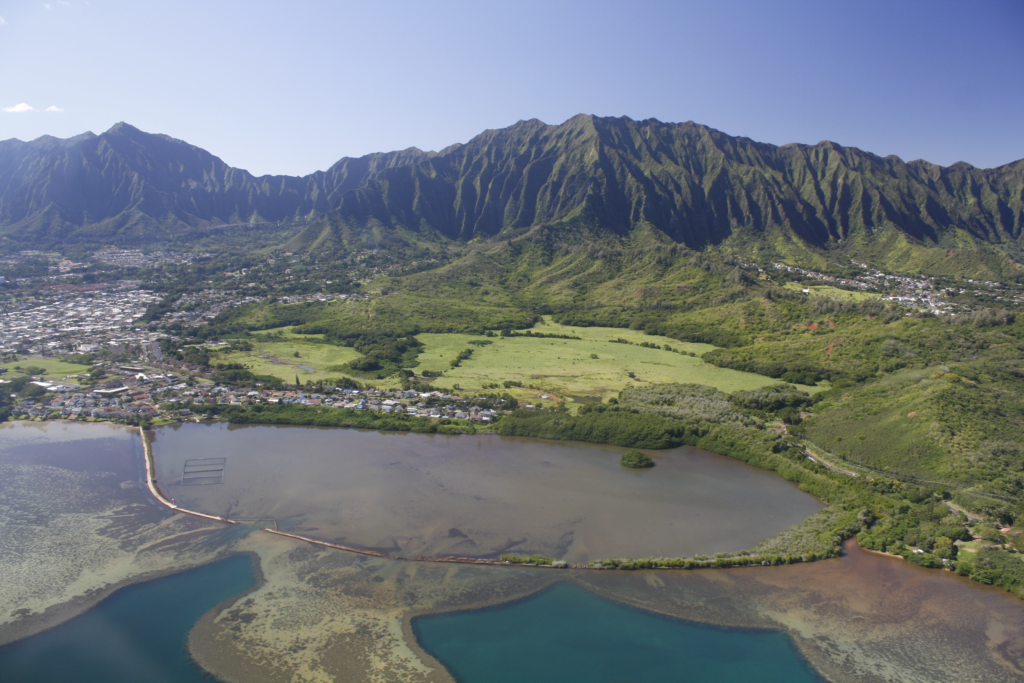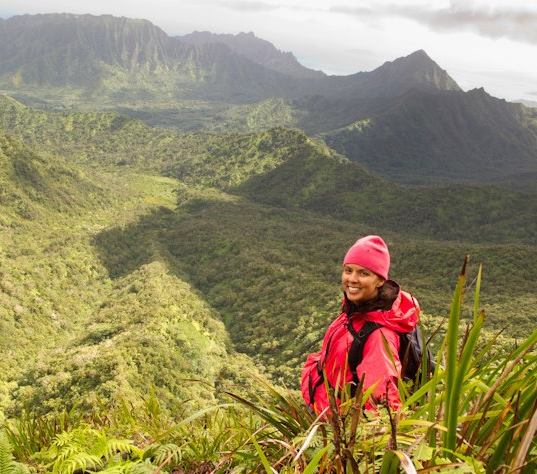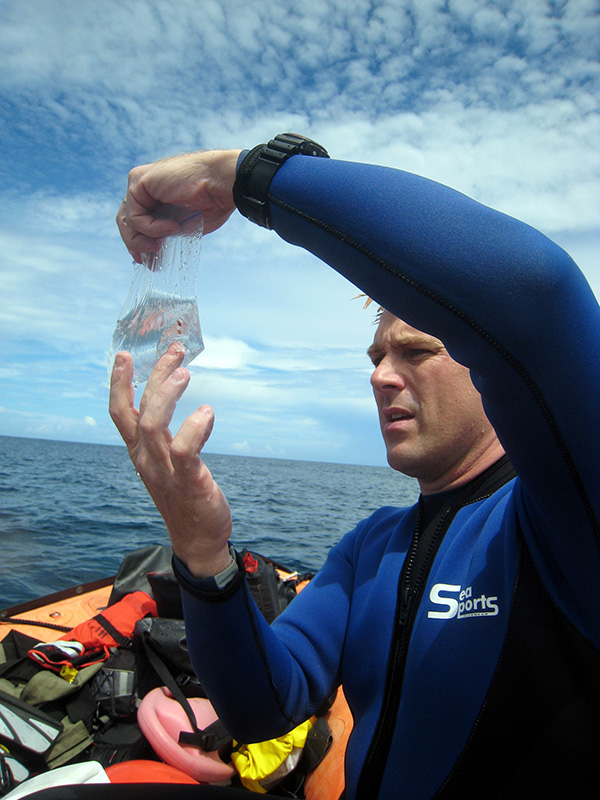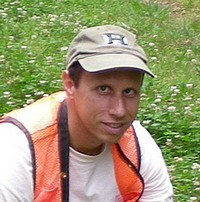Published this October, Pacific Science volume 71, no. 4 arrived with a special section on habitat restoration, which includes seven open-access articles. We asked Editor-in-Chief Curtis C. Daehler and guest editors Melissa Price and Robert J. Toonen to weigh in on this issue’s special topic and other research important to the quarterly science journal.

Vol. 71, Issue 4 includes a special feature: “Scaling Up Restoration Efforts in the Pacific Islands.” Why devote a whole section to this topic?
We have lost a lot of native species to habitat destruction in the Pacific region. Today, considerable attention is being given to protecting native ecosystems, for example, in the Hawai‘i Governor’s Sustainable Hawai‘i Initiative to protect 30% of the state’s watersheds by 2030. However, much less attention is given to restoration efforts, or the conversion of nonnative to native-dominated habitats. Invaded ecosystems may be more at risk for wildfires, and may enhance invasions of nearby native ecosystems. A few large-scale restoration success stories exist, such as that of Hakalau Forest National Wildlife Refuge, and there are a number of small-scale efforts across the Pacific led by nonprofit groups. In this issue, we hope to promote conversations about how we can scale up restoration efforts to improve resiliency, promote ecosystem services, and reduce extinction rates across the Pacific region.

What challenges did you face in the creation of this special section?
The biggest challenges were representing the range of work being done around the Pacific and asking those working at small scales to think about how their work might be scaled-up. Also, a number of projects were just getting started, and it may be decades before there are results from these efforts. Finally, truly transformative work will likely be transdisciplinary. People involved in restoration must partner across sectors to solve challenging problems associated with restoration, such as seed production, removal of invasive plants and animals, and access for equipment and people to remote locations. We still have a long way to go in these areas, but we hope that this special collection will spark productive conversations.

Pacific Science’s cover art changes with each issue. Tell us about the cover for Vol. 71, No. 4 (October 2017).
The cover art is an interpretive image provided by Ben Nyberg that visually represents the study of Winter and Lucas (read online here) to develop a spatial model of the social-ecological zones implemented during the aliʻi-era for the ahupuaʻa of Hāʻena on the island of Kauaʻi. This model is being used by resource managers to inform on-going and future restoration efforts on Kauaʻi. Given the focus of the special issue of scaling up from regional work to landscape scales, this recreation of the historical management and land use zones seemed a particularly fitting image for the cover of this special issue.

How does this issue contribute to global scientific research?
Technological improvements to air and water travel have increased the rate of species introductions in the Pacific region. Combined with high numbers of endangered species, and disproportionate impacts of sea level rise and climate change, the Pacific region is facing serious challenges. However, when compared with continental systems, due to the relatively small size of individual islands, restoration may occur at scales that improve resiliency and long-term survival of native species. The papers in this special issue (Judge et al. 2017; Kurashima et al. 2017; Powell et al. 2017; Rowe et al. 2017; Wada et al. 2017; Winter and Lucas 2017), demonstrate the value in large-scale efforts.

Do you have another special feature for Pacific Science in the works?
Not currently, but Pacific Science publishes a continuing series of invited reviews on “Biology and Impacts of Pacific Island Invasive Species,” with the next paper on feral pigs being scheduled for publication in vol. 72, no. 2 (April 2018). Large-scale feral pig control has proven to be a crucial step in protecting and restoring island biotas. Understanding and preserving Pacific biodiversity is a common theme that runs across many papers published in Pacific Science.
Find the full text of the issue at Project MUSE or BioOne
About the Journal
Appearing quarterly since 1947, Pacific Science is an international, multidisciplinary journal reporting research on the biological and physical sciences of the Pacific basin. It focuses on biogeography, ecology, evolution, geology and volcanology, oceanography, paleontology, and systematics.
Subscriptions
Individual subscription includes membership to the Pacific Science Association (PSA). Institutional and electronic subscriptions also available through UH Press.
Submissions
Contributions to the biological and physical sciences of the Pacific area are welcomed from authors in all parts of the world. See Pacific Science‘s submission guidelines for details.




